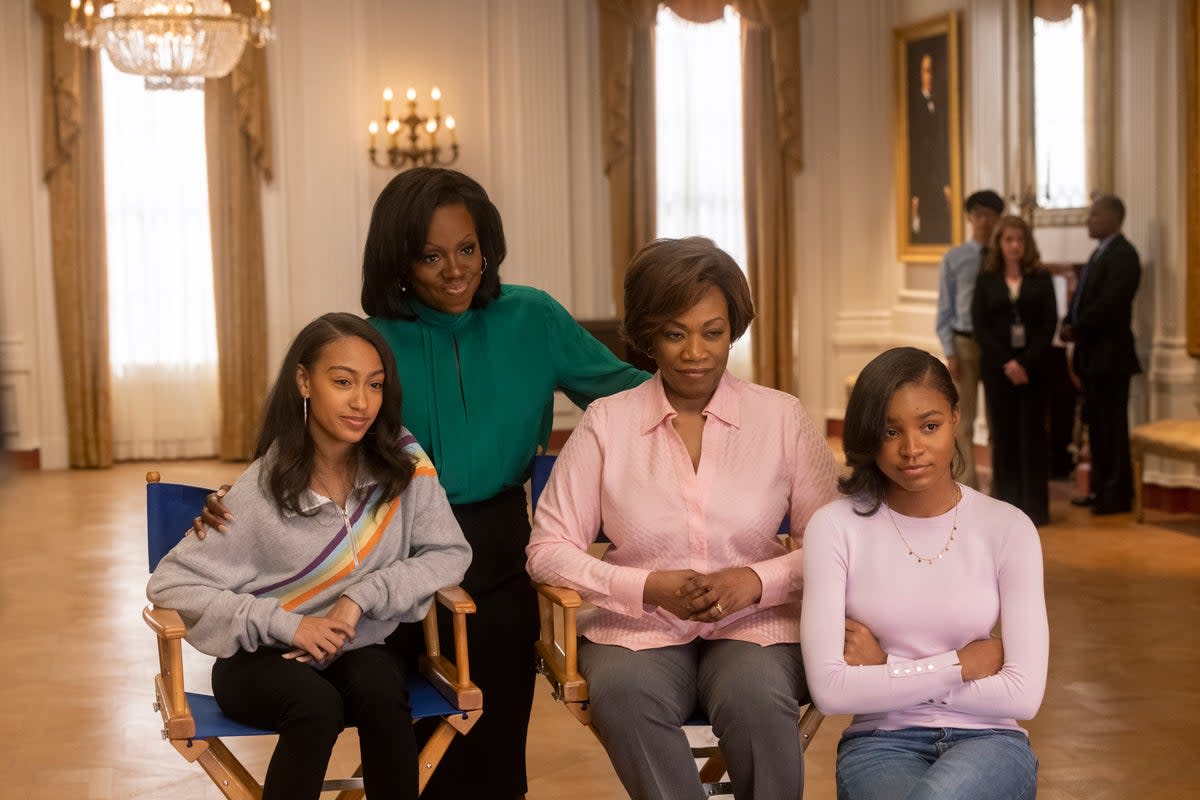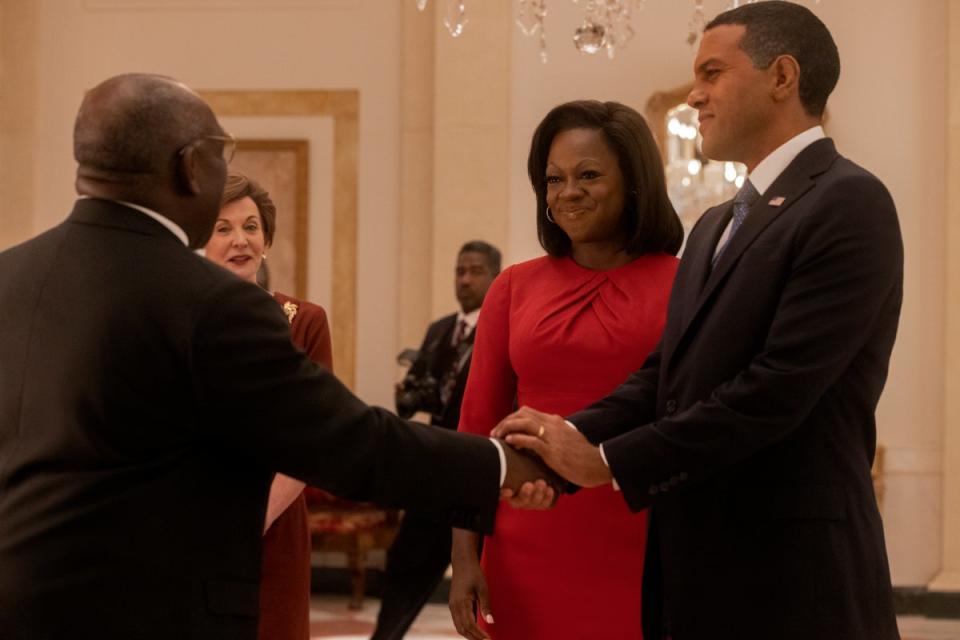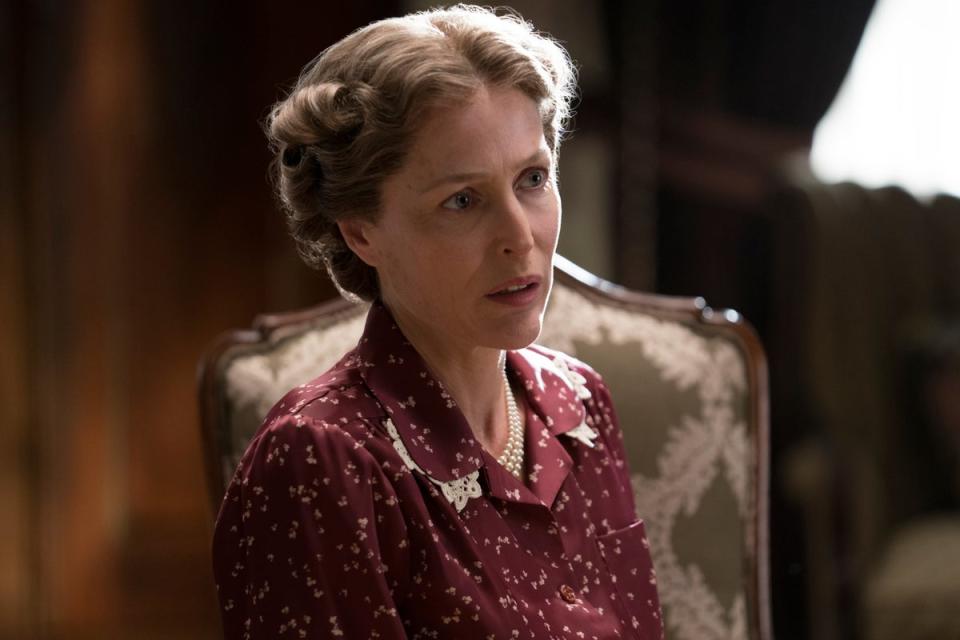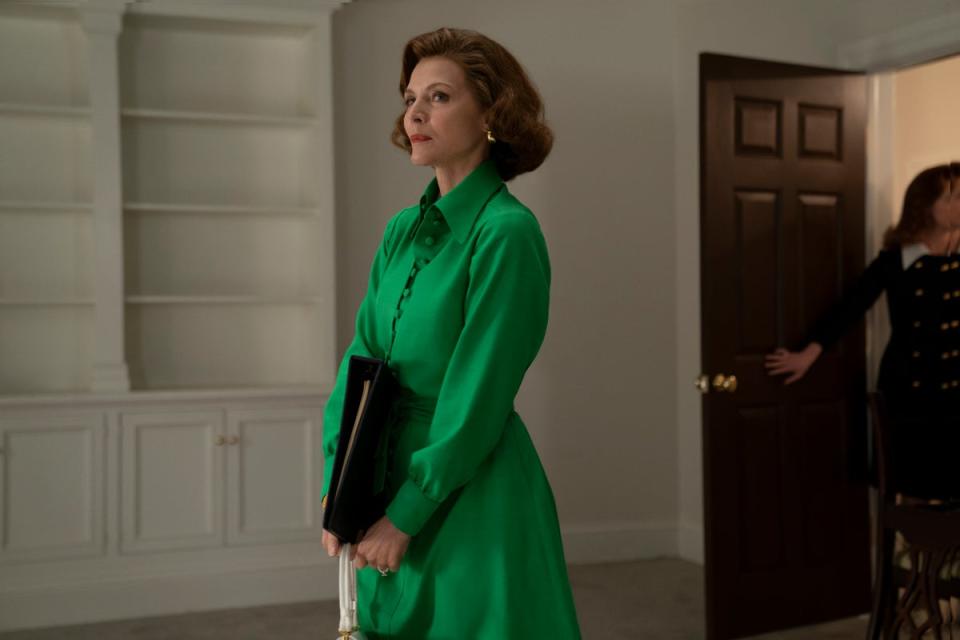The First Lady on Paramount+ review - gorgeous, but this tale of the presidents’ women needs to dig deeper

Let’s call it Impersonation Television, in which the famous and rich have their lives filleted for dramatic purposes. It is a thriving business of real history-ish meets well-costumed make believe. The Queen, starring Helen Mirren, and The Crown are the gold standard, in which the actors kind of look and sound like the royals they portray. The significant gap in between — they are not them, and we know that — is not disqualifying. Something about the actors’ inhabitation of their characters, and Peter Morgan’s deft writing, ring true enough for us to buy it.
Showtime’s new 10-episode The First Lady, created by Aaron Cooley and directed by Susanne Bier, treads a similar tightrope. Now available in the UK on Paramount+, which launches today, it focuses on three former First Ladies — in historical order, Eleanor Roosevelt (Gillian Anderson), Betty Ford (Michelle Pfeiffer), and Michelle Obama (Viola Davis) — and dovetails their experiences of being First Lady, showing what unites and separates them.
All three women are confronted by the contradictory forces shaping the role; the expectation that the First Lady will be a symbolic presence, but one that shouldn’t do or say much that could be deemed controversial. It is the most visible female role in American public life, and yet it is one still suspended in feminism-immune aspic.
Seeing as every real-life incident can be easily Googled or researched, the other thing Impersonation Television must do is take us behind what the internet or history books tell us to reveal an emotionally convincing and rich portrait of characters and events. This is the only way to eke something new from something old on screen. The Crown is criticised for doing so, but plausible dramatic license is what raises Impersonation Television from workmanlike Wikipedia entry to fresh and intriguing.

Each episode of The First Lady interweaves the stories of the three women, with Michelle, Betty, and Eleanor first getting used to their new positions, and their husband’s advisers seeking immediately to undercut and undermine their desire for independence. Their role, they are told overtly or obliquely, is to support their husbands — and not, as Michelle Obama is told, to “rock the boat too much”.
The show, at least two episodes in, is beautifully acted, slickly written, yet also predictable. It is not telling us anything new, or burrowing for insightful nuggets abouts its subjects, even as we follow their evolution from younger women to adults. Like most exercises in TV nostalgia, all our half-memories are reassuringly confirmed. It is not inquiring of its subjects. They are all heroically fighting forces that would silence them. Whether the women will be given faults, flaws, or even the odd hidden depth remains to be seen. So far, the story structure is “baddie seeks to diminish First Lady, First Lady swats baddie”. This is history best consumed with the drink of your choice.
Anderson’s Eleanor Roosevelt is the most immediately radical. She expects to read husband Franklin’s (Kiefer Sutherland, unrecognisable) speeches, and to have input into his administration, and a job too. His adviser tells her that she has a job — First Lady.
“That’s not a job… that’s my circumstance,” Eleanor says.

“I’m not thrilled that my title refers to my sex rather than my skills,” she remarks, and this again echoes across all the women’s experiences. Indeed Michelle opens a letter from Betty, by then too old and frail to attend Barack’s (played by OT Fagbenle) inauguration, who writes to her that “the job will find you. It has a way of doing it.”
We see the amount of murderous racism aimed at the Obamas, and Michelle bridling at the security they need long before the presidential election. She wants daughters Malia and Sasha to have as normal an upbringing as possible, and tells Barack to pick his clothes up off the floor (he says, rightly, she is going to be a “dope First Lady”). Davis captures Michelle’s mixture of warmth and steel; she was a high-flying professional before her husband won the presidency and is determined not to give up that identity, or diminish herself, at the altar of stereotypes. We see Betty Ford, who was yearning for a quiet retirement wearing quilted day-coats in Palm Springs, resign herself to her husband Gerald (Aaron Eckhart) continuing in high-level politics as a result of Richard Nixon’s scandalous downfall.
We observe the women tentatively making their way within the walls of the White House. Michelle Obama spots a racist painting, and greets the Black staff of the White House with warmth. Betty Ford, initially at least, is utterly lost, a ghost in her own role. Eleanor, as the niece of President Theodore Roosevelt, is the opposite; she knows this joint, right down to the location of hidden rooms.
Michelle stands up to Obama’s then chief of staff Rahm Emanuel, insisting she will appoint her own team, and not be relegated to growing vegetables and acting “the fluffy, inconsequential hostess”. Of the three, Michelle is obviously the exemplar of modern feminism, but is forced to tread the most cautiously because of the omnipresence of racism and the right wing media that propagates it so viciously.

Eleanor has, so far, the most intriguing story, because she begins as a polar opposite First Lady to the other two — seeing a high-profile appointment and a central position by her polio-struck husband’s side as utterly deserved, given her intelligence and capabilities. Lily Rabe brings an immediate chemistry to her scenes with Anderson, playing journalist Lorena “Hick” Hickok, long rumored to have had a relationship with Eleanor.
All the performances are smoothly executed, but occasionally they also illustrate the problems of this kind of TV. Anderson, who played Margaret Thatcher in The Crown with a stiff gait and a version of that famous voice that divided critics, here performs more verbal tricks and expression gymnastics to capture Roosevelt. We are similarly aware of Davis working to master Michelle Obama’s facial movements.
Pfeiffer’s Betty Ford feels freer. She inhabits her so comfortably we are never aware of the actress. In the early episodes, we see the roots of Ford’s addiction that finally gave shape to her legacy. Addressing a group of political wives, she first places the wine glass she is drinking from on the lectern before hustling it below. Before it is seen and experienced as a debilitating problem we see her at home, day-drinking and dancing.
Betty must stand up to Ford’s then chief of staff Donald Rumsfeld (Derek Cecil) and his colluding staff who see her as a loose cannon, and want her to be silenced. But no, Betty will damn well host her first state dinner! You may cheer, and you will also hope — however lovely it looks — that as a drama The First Lady eventually ventures deeper.
Now available on Paramount+


